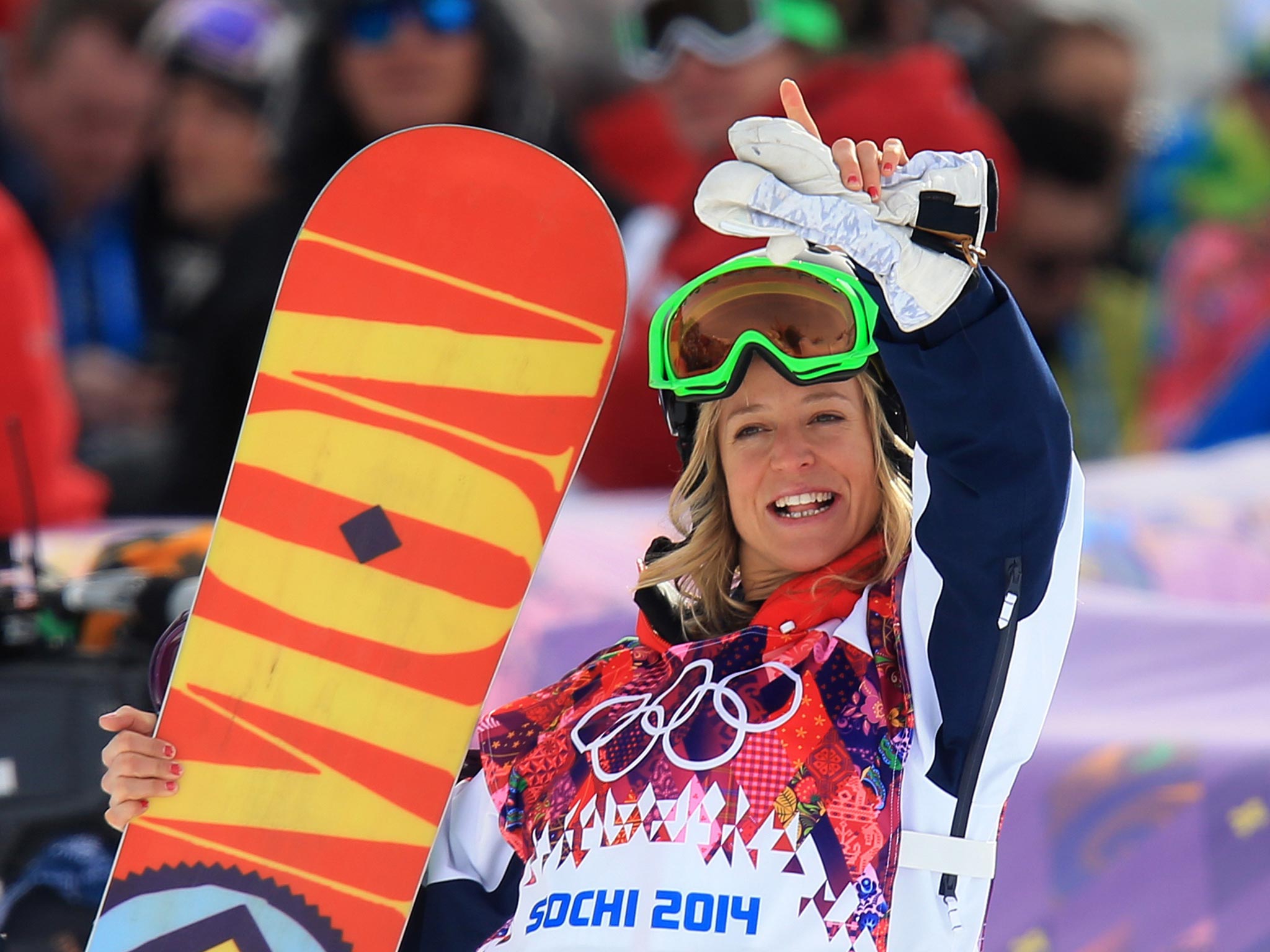Winter Olympics 2014: From selling doughnuts to sweet success - how snowboarder Jenny Jones claimed an Olympic medal
Bronze for Bristol snowboarder is UK’s first medal at Sochi – as slopestyle makes its Olympic debut

Your support helps us to tell the story
From reproductive rights to climate change to Big Tech, The Independent is on the ground when the story is developing. Whether it's investigating the financials of Elon Musk's pro-Trump PAC or producing our latest documentary, 'The A Word', which shines a light on the American women fighting for reproductive rights, we know how important it is to parse out the facts from the messaging.
At such a critical moment in US history, we need reporters on the ground. Your donation allows us to keep sending journalists to speak to both sides of the story.
The Independent is trusted by Americans across the entire political spectrum. And unlike many other quality news outlets, we choose not to lock Americans out of our reporting and analysis with paywalls. We believe quality journalism should be available to everyone, paid for by those who can afford it.
Your support makes all the difference.Jenny Jones created a sporting record on Sunday by claiming the first medal Great Britain has won on snow in the 90-year history of the Winter Olympics.
The 33-year-old has sold doughnuts in Vancouver and worked night shifts in a cardboard factory in her home town of Bristol to help to fund her sporting career. On Sunday afternoon, high in the mountains above Sochi in the Rosa Khutor Extreme Park, it all became worthwhile – as did the broken back and numerous other broken bones – as she collected a bronze medal in snowboard slopestyle.
“It feels ridiculous, I can’t actually believe it,” said Jones, before breaking down in tears when her parents were pushed through the crowd.
“We feel we’ve gone through this rollercoaster journey and it didn’t stop until the last second,” said her mother, Helen, a midwife. Alongside her, Pete, Jones’s father, who is a retired firefighter, simply beamed.
It had been a nerve-shredding finale for all three Joneses, as well as Jenny’s two brothers, who were watching back home in Bristol.
In slopestyle each competitor has two runs down a 635m course performing jumps and tricks on which they are judged. The better run counts.
Jones, who scraped into the 12-strong final, moved into the gold-medal position after her second run and then had to watch the remaining 10 women compete. By the time the last boarder took to the start line Jones had experienced the longest 45 minutes of her life, slipping first to silver and then into the bronze-medal position.
She chewed her fingernails anxiously as Anna Gasser, the pre-event favourite, set off but moments later the wait was over as the Austrian slipped and tumbled to the ground. Such was the nervous tension bottled inside her that Jones, as the realisation she had won a medal took hold, suffered a fit of the giggles.
It marked the culmination of a long journey to an Olympic podium. Over the past five years she has made a good living from the sport but before that she took a succession of jobs to make ends meet.
“She has done everything,” Pete Jones said. “She has worked in a cardboard factory. That was awful. I used to take her there at nights. She made burgers. In Vancouver she worked in a doughnut shop.”
This is the first Olympics in which slopestyle has featured. It is a sport dominated by athletes in their early twenties – Jones is a decade older than the other two medallists – and many thought its Olympic debut had come too late for Jones, who had dominated the event in previous, non-Olympic years.
There was doubt as to whether she would make it to Sochi as she was badly concussed in a training crash in Austria in December. It meant a groggy Christmas at home with a worried mum and dad.
“We often say that you get two phone calls after a competition – it’s either, ‘I’ve won a medal, Dad,’ or, ‘I’m in hospital,’” Mr Jones said.
At Christmas they feared the worst. “We genuinely thought it was all over,” said Mrs Jones – so much so that she and her husband delayed applying for Russian visas, which arrived the night before they were due to fly.
Their daughter’s bronze is only the 23rd Winter Olympic medal won by a British athlete, and the first on snow. All the others have come on ice – in curling, skeleton, bobsleigh, ice hockey and figure skating.
Alain Baxter won slalom bronze in Salt Lake City in 2002 but the skier had the medal stripped after a positive drugs test. The unfortunate Scot had used a nasal inhaler he bought in the US – and, unlike the same brand he had at home, it included a banned stimulant.
Jones’s achievement means that Team GB’s Winter Olympians secured their first medal slightly quicker than their Summer colleagues did in 2012. Cyclist Lizzie Armitstead took silver in the women’s road race on the second full day of London 2012.
Join our commenting forum
Join thought-provoking conversations, follow other Independent readers and see their replies
Comments